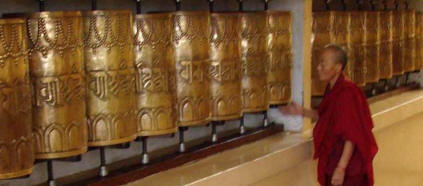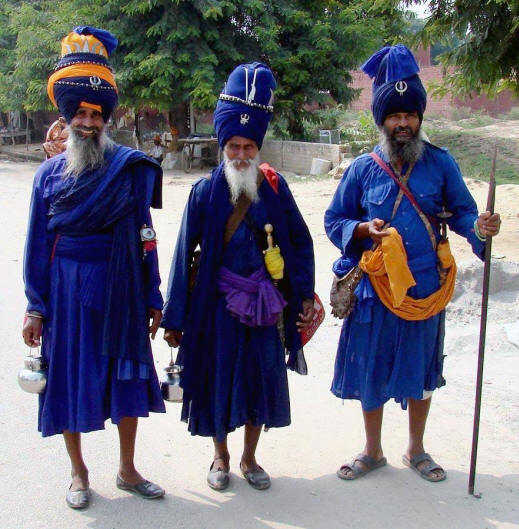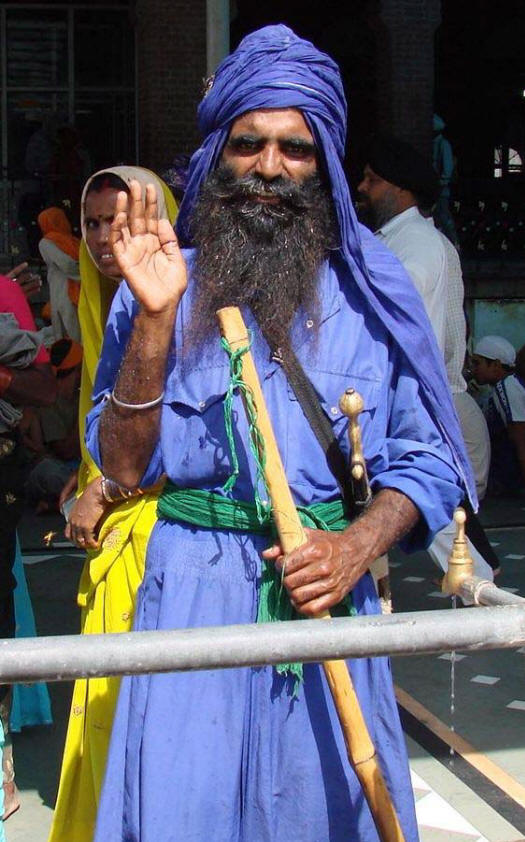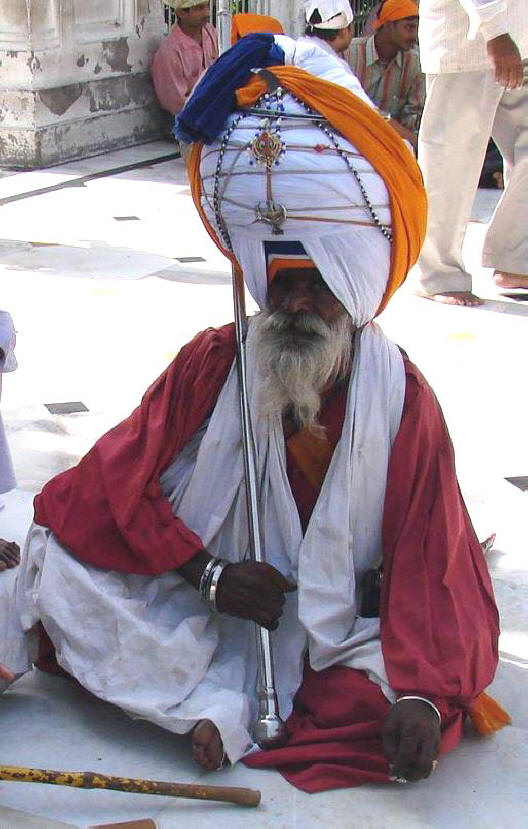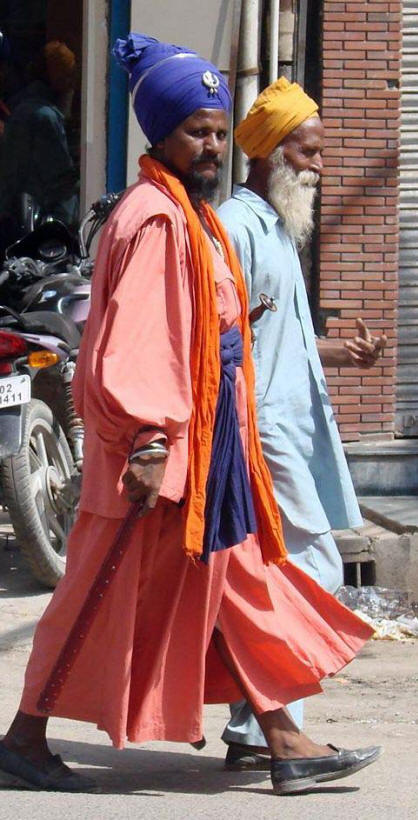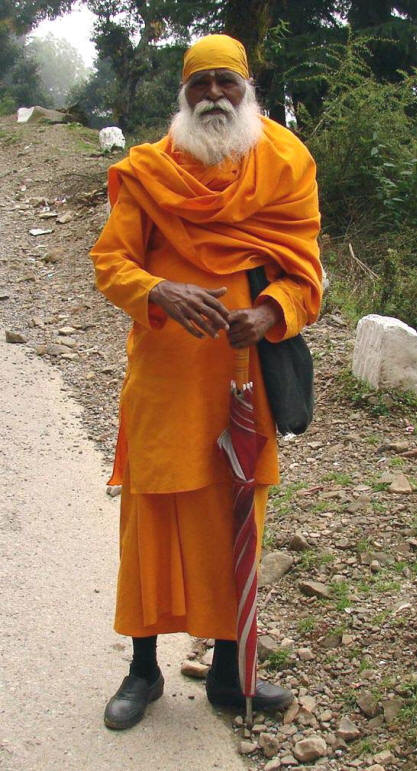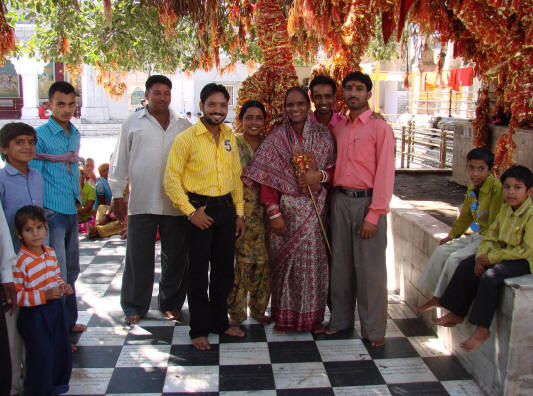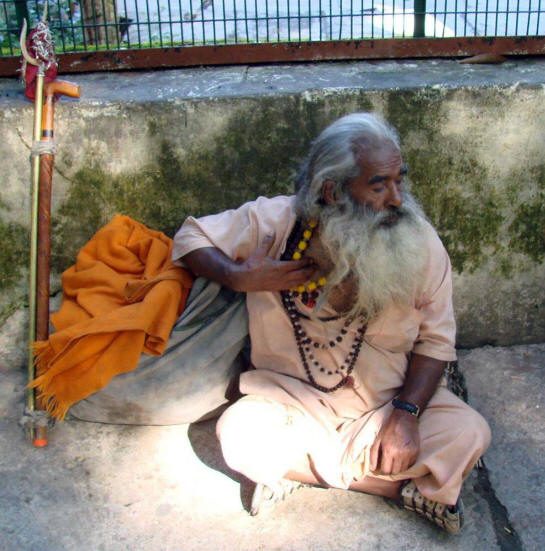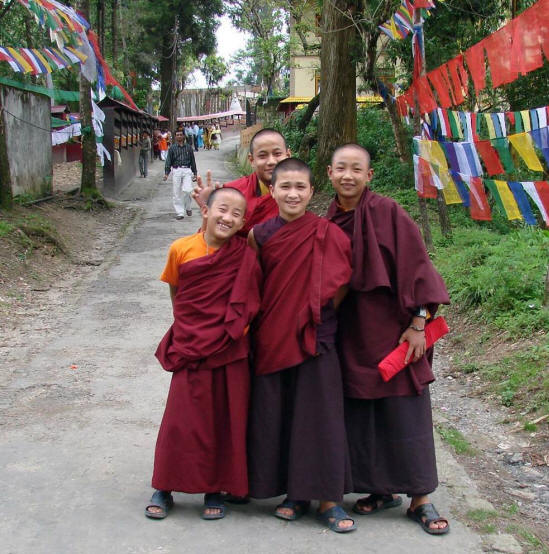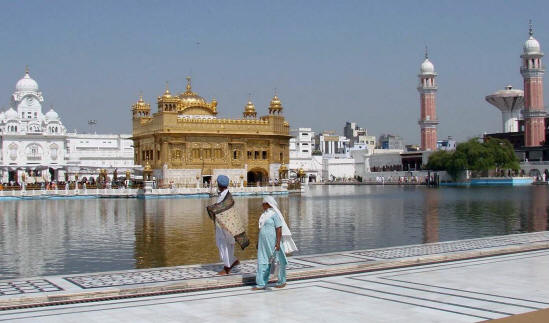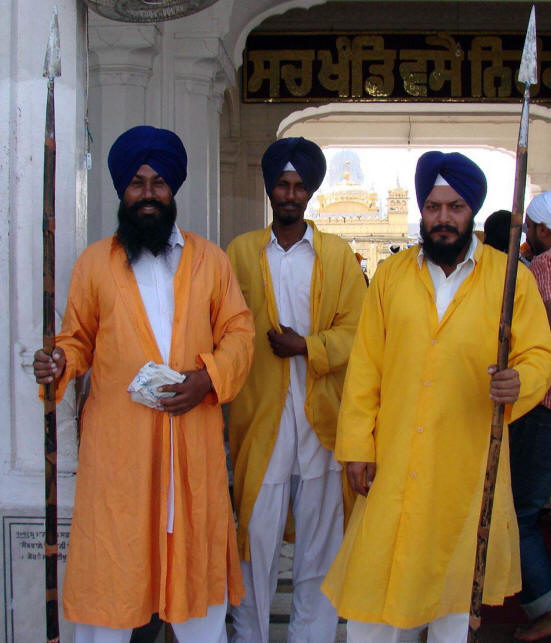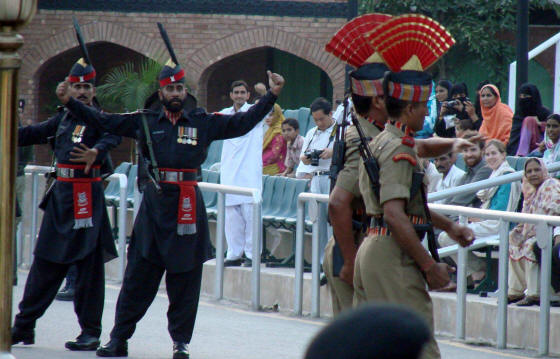|
Star Date: October 2008 |
||
|
Hello Dear Family & Friends!
Tashi Delek!
"No matter
what part of the world we come from, we are all basically
the same human beings. We all seek happiness and try to
avoid suffering."
(Dalai Lama (1935 - )
Tibetan spiritual leader.
Speech on acceptance of a Nobel Prize in peace, Stockholm, Sweden)
Om Mani Padme Hum! Buddhist chants, temple pujas, and melodic music drift lightly across the peaks and valleys surrounding McLeod Ganj. Prayer flags flutter in the breeze, carrying petitions toward the heavens. A refuge of peace hidden away from the chaos outside. Tibetans originate from the rooftop of the world. They grew up high in the Himalayas, close to the heavens. Is this the reason that they explore the connection between 'heaven' and our earthly realm? The harshness of their climate, as in the mountain tops of Peru, has possibly forced these mountain dwellers to seek refuge inwards, cultivating and living in the realm of inner peace. Contentment radiates through the vibrant smiles of the Tibetan refugees of Dharamsala. Driven from their troubled homeland, they have recreated a little Tibet. Many have made the dangerous journey by foot over the rugged Himalayan passes to this kingdom in exile, provided by the Indian government. The world renowned Buddhist leader and Nobel Prize winner, His Holiness the 14th Dalai Lama, lived right down the road from our guesthouse. McLeod Ganj has become a major center for studying the religious, medicinal and cultural aspects of the Tibetans. Nuns and monks wander the streets doing errands, mingling with foreigners anxious to help their cause, volunteering far more popular here than back at home. Monasteries and schools are full to the brim with young and old alike anxious to maintain their Tibetan heritage. As the chance of returning home grows dimmer with each decade, the strength and compassion of the Dalai Lama and his call for non violence with right action leading from inner peace, have made him a shining example here and in the west. The Dalai Lama shared in his acceptance speech for the Nobel Prize for Peace: "Because violence can only breed more violence and suffering, our struggle must remain nonviolent and free of hatred. We are trying to end the suffering of our people, not inflict suffering on others." We met John 2 years ago in remote western Tibet, while exploring the ruins of the Guge Kingdom, (Sapara) by jeep. We have corresponded with him, an explorer, archeologist and expert of ancient pre-Buddhist Tibetan ruins and artifacts, since then. The wonder of email. We contacted him to say we had arrived in Dharamsala, where he has lived since moving from the eastern U.S. in 1984. About to return to Tibet once again, he has literally spent '7 years in Tibet' off and on. He gave us a copy of the documentary that we watched the Discovery Channel crew film out at the Guge Kingdom. He was the resident advisor during the filming. A show worth catching. We hiked over 6 km. through beautiful pines forests, out to his house in a neighboring village. In complete seclusion amid the mountains, he has written 7 books. The mountains of northern India have many refreshing places to hide out. There were a number of beggars with leprosy working the tourist filled streets of McLeod Ganj. With the cure for this horrific disease available it is disturbing to see all the missing and deformed limbs. I made friends with one such lady, missing both hands and even her nose. We never give money which we feel encourages further begging, but instead look them in the eye and each day give them a heartfelt "Hello!", as if they were the CEO of a corporation. Beggars appreciate being treated with respect and often a friendship develops. Sometimes we will buy food for them or drop off a bag of goodies they may enjoy. There is a hierarchy of beggars on the streets of the world, with sleazy higher ups skimming a percentage of the earnings from underlings, especially the dirty, ragamuffin children. The line of beggars seems endless in these poor countries. Usually we choose to donate towards education instead, in hopes of helping the next generation. Nepal even has signs asking, "Please don't give money to beggars - it encourages further begging." When the weather turned cold and rainy in McLeod Ganj I saw my little lady with leprosy curled up, shivering, trying to sleep under an overhang. I couldn't stand it and sneaked over and dropped some money in her can. She opened one eye and smiled. We are so blessed in the west and yet we seem to be so unhappy; whining and always complaining about this and that. Try trading places with her! Unfathomable. When walking back from the waterfalls high in the mountains above Banto we met one of the regular street beggars literally crawling along the side of the road. Sitting on twisted tiny legs he scoots forward on a little square food tray with wheels, pulling himself along with hands protected by pads made from tires. With over 1 km. yet to go he broke into the same wide smile and "Namaste or Hi!" he had shared with us in town many times. Immediately after we met him, a well dressed young European woman came towards us scowling as she raced along. Not knowing us, she didn't even bother to respond to our cheerful "Hello!" Take a moment to think about what we just described. Where does each of us fit in to this scenario? Let's remember to have an 'Attitude of Gratitude' for all our many gifts. The fun thing about a few days in a tourist hangout is the tasty food and the variety of people we talk to from every country imaginable. From interesting young backpackers wearing wild hippy clothes, carrying didgeridoos, sporting dreads and finding themselves; to ordinary people out exploring the globe for a few weeks, maybe volunteering or taking a meditation or yoga course. Also represented are the older travelers journeying, living, working or retired abroad. It's usually the full global spectrum. Some are escaping back home but they soon find out that wherever they go, 'there they are'. Others create dramas around themselves at home and abroad, and are drawn towards a certain spiritual path of ancient wisdom in hopes of breaking the cycle. Most are just out exploring this amazing world and the unique people with which we share it. This assortment of people is all woven into the colorful tapestry called 'our life'. Whatever causes our paths to cross, it is fun to have a cup of tea and chat. The Indian highlands are famous for their tea plantations. Until the 19th century, China was the sole merchant of tea. In 1834 the British introduced tea in India, from there spreading to Asia, Africa, S. America and it is now the second most popular drink in the world following water. All from the same plant, green tea is heated whole, black tea is crushed then fired to black. Earl Grey tea or fruit essences have oil added for flavor. Herbal tea is a whole different set of possibilities, minus the caffeine. Whatever flavor you choose to warm you up on a chilly mountain evening, don' forget the hot apple pie. Tourist centers do have perks. One afternoon we spent a couple of hours talking to Britt Das from Amsterdam (www.footprintsforfreedom.org) who has just walked 9,000 km from Holland, including across northern Afghanistan, and will continue another 2,000 km to Lhasa. This intelligent young woman is sending reports to magazines back home. Quite a story and we hope to stay in touch. Our only option was to head south as an early storm had blocked passes from Leh to Manali and dumped snow in the towering mountains. After a delightful, restful 10 days exploring around Dharamsala we took the bus to Kangra. Literally washed into the Maurya Hotel with an afternoon downpour, we spent the next day visiting their temples and forts before taking the Kangra 'toy' train 4 hours to Palampur. Just getting to the station in the morning via rickshaw and over a wobbly foot bridge is an adventure. The scenic ride on the narrow-gauge rail winds along hills, following a river through valleys. We tried to buy a ticket at the station but the window was closed. No one ever asked us for the fare en-route so we rode for free, just like the crafty holy men (sadus) with whom we shared our little coach. Packed with colorful locals and sadus we had a fun morning lumbering along, enjoying the journey and forgetting the destination. Arriving at the border of Pakistan 30 miles from Amritsar, we were in stitches watching the sunset display of bravado between the rivaling countries of India and Pakistan. Take two fighting roosters dressed like peacocks, throw in an overdose of testosterone and military goose stepping outdoing the New York City Rockettes, and you've got an unrivaled eclectic show of nationalism. As the soldiers from each country face off, almost running towards each other while kicking high above their heads, it is like something out of a Monty Python skit. The border gate is flung open and the opposing sides make their stand, first saluting then glaring at each other. Music blares, people cheer as the grandstand in each country goes wild shouting 'Hindustan Zindabad', Long Live Hindustan (or Pakistan)! Unfair odds during Ramadan left Pakistan's stands sparsely filled and overwhelmed. The respective flags are lowered and the gate slams shut. Done. Wouldn't it be great if rather than using wars to sooth the egos of opposing nations we used impartial judges to decide the winner? Stunning.
The Golden Temple is unquestionably one of the top sacred sites of the
world. It is a combination of splendid beauty and sublime
peacefulness. Hidden away in the middle of chaotic streets, this temple compound maintains the feel of a retreat from the outside
world. Originally a small lake in the midst of a quiet forest,
this site has been a meditation retreat for wandering sadus and
sages since antiquity. The Buddha is known to have
contemplated here and 2000 years later Guru Nanak (1469-1539)
founder of the Sikh religion lived here. Unimpressed with both
Muslim and Hindu religions Nanak was a farmer, married with 2 sons.
Unlike many Indian holy men he believed in the value of hard work
and stable family life. He wrote songs, believed in equality
rather than the shackles of the caste system, and wandered the land
teaching that "a person who makes an honest living and shares
earnings with others recognizes the way to God." There
are no Sikh beggars. Guru Nanak's 'kirtan'
or holy songs are sung daily in 'Gurdwara' temples and his photo, with
turban and uncut beard, is hung in millions of Sikh homes worldwide. The precious jewel encrusted Hari Mandir Sahib sanctuary,
an inverted lotus, is spectacular. Decorated with 'pietra dura' inlaid stones like at the Taj
Mahal, it is supposedly covered with 750 kgs of gold. Set in the middle of the lake it holds the Adi Grantha,
the sacred scripture of the Sikhs, a collection of devotional
prayers, poems and hymns. Temple priests chant these
verses written by Sikh,
Moslem and Hindu gurus and saints from morning until late at night.
Exquisitely accompanied by flutes, drums and stringed instruments
this enchanting music echoes across the serene lake, inducing a
gentle yet powerful state of trance in the throngs of Sikh pilgrims.
Groups of believers in bright saris or sporting traditional turbans
and beards stroll leisurely around the marble temple and pool. An
underground spring feeds the sacred lake and devotees immerse
themselves in the water, symbolically cleansing their soul. And so it goes.........................................Next month Rajasthan, and the star filled deserts of the Arabian Nights. Until then lets take the time daily to find that inner peace, for which every spiritual path searches, be it Buddhist, Muslim, Sikh, Hindu, Christian. The best thing we can do for peace in our troubled world is to be peaceful ourselves. Keep Smiling We are glad you stopped by. Thanks for keeping in touch and for sharing the link to our site with your friends! We have had emails from all over telling us they are enjoying our adventures. Take care!
Love, Light &
Laughter,
Travel notes: $1.00US = 48 Indian Rupees (Dharamsala) Mcleod Ganj: Namgyal Cafe, (May Happy & Warm Smiles Be With You!) Vegetarian cafe that trains new refugees how to cook. A worthy cause and great food. Quiet, cozy. Next to the gate to the Dalai Lamas house. Sporting a photo of Richard Greer, who stops by for lunch when hanging with His Holiness. Skip the veggie pizza ala cabbage. Don't miss the street side momos (Tibetan dumplings of all shapes and sizes. Basically you can just eat and visit your way around Mcleod Ganj. And many people do. In Batsu - try the new middle eastern falafel stand. If you walk or trek around the area don't worry about gaining weight -it's all up or down and a great workout. Gakyi Vegetarian Tibetan Restaurant. Let Dekyi and the boys serve up some of the tastiest and cheapest vegetarian (ask for vegan too) food in town. Their reputation of over 20 years precedes them and it's tough to get a seat in this tiny place, but worth the wait. Tired of dahl & rice? Try Jimmy's or Nick's Italian (find the one on the way to Batsu with rooftop dining) for pizza, and wonderful dessert like hot apple pie. There is a tiny but good Osho health food store up the steep alley from the bus stand. Amritsar:
This month was rich
with 'Sadus' or eccentric
|
|
|
